 W
WThe Alliance of Democrats was a loose political international which operated from 2005 to 2012. While it did not publish an official manifesto, it consisted of a broad array of political parties that identified as centre-right, centrist, and centre-left. It was founded by the United States Democratic Party, the European Democratic Party (EDP) and the Council of Asian Liberals and Democrats (CALD).
 W
WThe Allied Control Council or Allied Control Authority and also referred to as the Four Powers, was the governing body of the Allied Occupation Zones in Germany and Allied-occupied Austria after the end of World War II. Members were the Soviet Union, the United Kingdom, the United States and France. The organisation was based in Berlin-Schöneberg. The council was convened to determine several plans for postwar Europe, including how to change borders and transfer populations in Eastern Europe and Germany. As the four Allied Powers had joined themselves into a condominium asserting 'supreme' power in Germany, the Allied Control Council was constituted the sole legal sovereign authority for Germany as a whole, replacing the extinct civil government of Nazi Germany.
 W
WThe Allied Kommandatura, or often just Kommandatura, also known as the Alliierte Kommandantur in German, was the governing body for the city of Berlin following Germany's defeat in World War II. The victorious allied powers established control of post-war Germany and other territories via shared Military Government councils, including for Berlin. The Kommandatura was often known as the little brother to the Allied Control Council, which had the same function for the whole of Germany, and was subordinate to it. It originally comprised representatives from the United States, the United Kingdom, and the Soviet Union but later included France. The Kommandatura had its home in the Berlin district of Dahlem.
 W
WThe Arab Cooperation Council (ACC) was founded in February 1989 by North Yemen, Iraq, Jordan, and Egypt.
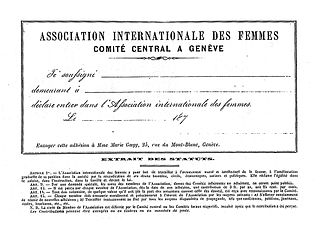 W
WThe Association internationale des femmes' was a short-lived feminist and pacifist organization based in Geneva that was active between 1868 and 1872. It demanded full equality between men and women. This was too radical for many feminists at the time.
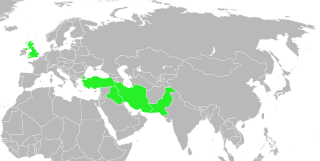 W
WThe Central Treaty Organisation (CENTO), originally known as the Baghdad Pact or the Middle East Treaty Organisation (METO), was a military alliance of the Cold War. It was formed in 1955 by Iran, Iraq, Pakistan, Turkey and the United Kingdom and dissolved in 1979.
 W
WThe Council for Mutual Economic Assistance was an economic organization from 1949 to 1991 under the leadership of the Soviet Union that comprised the countries of the Eastern Bloc along with a number of socialist states elsewhere in the world.
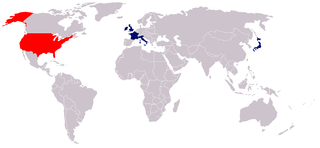 W
WThe Conference of Ambassadors of the Principal Allied and Associated Powers was an inter-allied organization of the Entente in the period following the end of World War I. Formed in Paris in January 1920 it became a successor of the Supreme War Council and was later on de facto incorporated into the League of Nations as one of its governing bodies. It became less active after the Locarno Treaties of 1925 and formally ceased to exist in 1931 or 1935.
 W
WThe League of Corinth, also referred to as the Hellenic League, was a confederation of Greek states created by Philip II during the winter of 338 BC/337 BC after the Battle of Chaeronea and succeeded by Alexander the Great at 336 BC, to facilitate the use of military forces in the war of Greece against Persia. The name 'League of Corinth' was invented by modern historians due to the first council of the League being in Corinth. It was the first time in history that most of the Greek states managed to become part of a single political entity. Earlier, in 346 BC, Isocrates urged Philip to unify Greece against the Persians.
 W
WThe European Economic Community (EEC) was a regional organisation that aimed to bring about economic integration among its member states. It was created by the Treaty of Rome of 1957. Upon the formation of the European Union in 1993, the EEC was incorporated into the EU and renamed the European Community (EC). In 2009, the EC formally ceased to exist and its institutions were directly absorbed by the EU. This made the Union the formal successor institution of the Community.
 W
WThe French Community was an association of former French colonies, mostly from Africa. In 1958 it replaced the French Union, which had itself succeeded the French colonial empire in 1946.
 W
WThe French Union (1946–1958) was a political entity created by the French Fourth Republic to replace the old French colonial system, colloquially known as the "French Empire". It was the formal end of the "indigenous" status of French subjects in colonial areas.
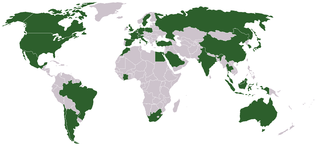 W
WThe Group of 33 was an international grouping that existed briefly in 1999, comprising the thirty-three leading national economies of the world.
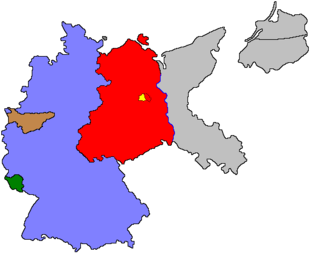 W
WThe International Authority for the Ruhr (IAR) was an international body established in 1949 by the Western Allies to control the coal and steel industry of the Ruhr Area in West Germany. Its seat had been in Düsseldorf.
 W
WThe League of Fiume was one of the many political experiments that took place during the Italian Regency of Carnaro period when Gabriele d'Annunzio and the intellectuals that took part with him in the Fiume Endeavor attempted to establish a movement of non-aligned nations. In their plans, this league was meant to be in antithesis to the Wilsonian League of Nations, which was seen by many of Fiume's intellectuals as a mean to perpetuate a corrupt and imperialist status quo.
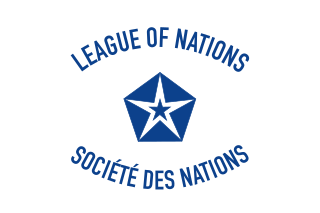 W
WThe League of Nations, abbreviated as LON, was the first worldwide intergovernmental organisation whose principal mission was to maintain world peace. It was founded on 10 January 1920 following the Paris Peace Conference that ended the First World War, and ceased operations on 20 April 1946.
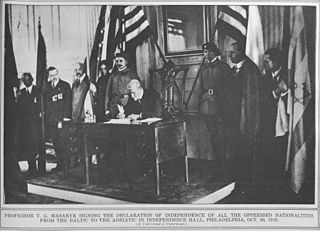 W
WThe Mid-European Union was a post-World War I political association established in the United States of America on 16 September 1918 "to negotiate territorial disputes between the emerging nations" of Central Europe "and to work towards some form of federal union or economic alliance."
 W
WThe Organisation of African Unity was an intergovernmental organization established on 25 May 1963 in Addis Ababa, Ethiopia, with 32 signatory governments. One of the main heads for OAU's establishment was Kwame Nkrumah of Ghana. It was disbanded on 9 July 2002 by its last chairman, South African President Thabo Mbeki, and replaced by the African Union (AU). Some of the key aims of the OAU were to encourage political and economic integration among member states, and to eradicate colonialism and neo-colonialism from the African continent. Although it achieved some success, there were also differences of opinion as to how that was going to be achieved.
 W
WThe Southeast Asia Treaty Organization (SEATO) was an international organization for collective defense in Southeast Asia created by the Southeast Asia Collective Defense Treaty, or Manila Pact, signed in September 1954.
 W
WThe Union of African States, sometimes called the Ghana–Guinea–Mali Union, was a short-lived and loose regional organization formed 1958 linking the West African nations of Ghana and Guinea as the Union of Independent African States. Mali joined in 1960. It disbanded in 1963.
 W
WThe Warsaw Treaty Organization (WTO), officially the Treaty of Friendship, Cooperation and Mutual Assistance, commonly known as the Warsaw Pact (WP), was a collective defense treaty signed in Warsaw, Poland between the Soviet Union and seven other Eastern Bloc socialist republics of Central and Eastern Europe in May 1955, during the Cold War. The Warsaw Pact was the military complement to the Council for Mutual Economic Assistance (CoMEcon), the regional economic organization for the socialist states of Central and Eastern Europe. The Warsaw Pact was created in reaction to the integration of West Germany into NATO in 1955 per the London and Paris Conferences of 1954, but it is also considered to have been motivated by Soviet desires to maintain control over military forces in Central and Eastern Europe.
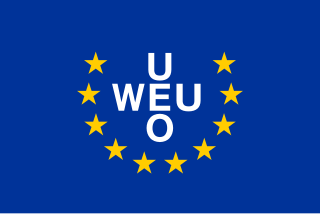 W
WThe Western European Union was the international organisation and military alliance that succeeded the Western Union (WU) after the 1954 amendment of the 1948 Treaty of Brussels. The WEU implemented the Modified Brussels Treaty. During the Cold War, the Western Bloc included the WEU member states and the United States and Canada as part of the North Atlantic Treaty Organization (NATO).